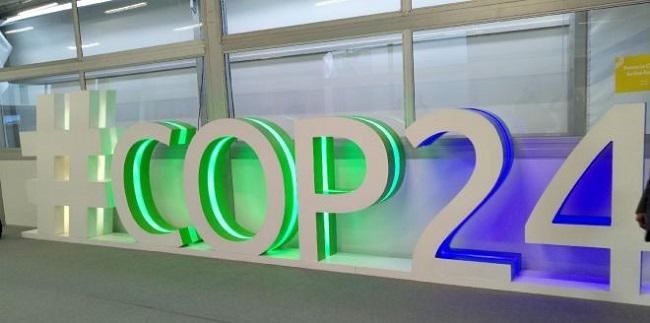World leaders arrived at the UN climate talks in Katowice with a mandate to uphold the Paris Agreement and respond to the emergency of the climate crisis. The IPCC 1.5C Report makes it clear that every tenth of a degree of warming matters and we need to act now to cut emissions in half within the next 12 years.

But these past two weeks, say observers, governments did not respond with the political will to tackle the urgency of the climate crisis informed by the latest science.
The United States and a handful of nations like Saudi Arabia allegedly sought to routinely disrupt the process but far too many countries came unprepared to strengthen the international climate regime and chose to stay on the sidelines.
Countries, they noted, must bear the weight of their decisions and acknowledge their lack of leadership to support the most vulnerable countries, who have committed to stronger climate targets by 2020.
The overbearing presence of the fossil fuel industry combined with a weak Polish Presidency cast a shadow over the talks, they emphasised.
In Katowice, governments were expected to craft robust rules for the Paris Agreement that will drive climate action, adopt a COP decision to enhance climate targets by 2020 and deliver adequate and predictable finance and support to fully implement nationally determined contributions (NDCs).
Countries nevertheless agreed to a comprehensive set of rules that will help operationalise the Paris Agreement, despite failing to establish any rules for carbon markets post-2020. On transparency, guidance for NDCs and accounting, a strong basis has been created that ensures parties will be accountable for their commitments. A robust framework has been created for the Global Stocktake, taking into account equity and best available science.
The framework for carbon markets proved to be too contentious to land an agreement. Even the most basic and essential accounting requirements could not be agreed upon, such as avoiding double counting of emission reductions, or the transition of flawed pre-2020 markets, could not be resolved and led to postponing the entire set of rules related to article 6 to COP25. Developed countries are still largely free to account as they see fit for the finance they provide and mobilise to meet the $100 billion goal by 2020.
While the talks saw much-needed financial pledges to the Green Climate Fund (GCF), to the Least Developed Countries Fund – and for the first time Adaptation Fund pledges crossed the $100 million threshold, wealthy nations must offer larger and more predictable channels of funding that will instill confidence in developing countries to implement national climate plans. The dearth of adequate finance of most countries continues to undermine trust. The replenishment process to the GCF in 2019 must be a race to the top with countries following the example of Germany to at least doubling on their current commitments. Developed countries must also honour the $100 billion in the next two years.
Outside the isolation tank of the COP is the real world where thousands of children are boycotting school to demand action, people are taking on fossil fuel lobbies, risking arrest and bringing cities to a halt and farmers are marching against escalating impacts.
“Our current collective climate targets set us on a 3C warming pathway, but people are refusing to accept a status quo that consigns our future and that of other species to a smouldering pile of ash,” they stressed, adding that COP24 was a test on climate multilateralism – one that countries have barely passed.
“Countries reaffirmed their decision in Paris to submit national climate commitment by 2020. Now delegates must return to their capitals and begin domestic processes to enhance ambition by 2020. Nothing short of this will do. They must bring these commitments to the UN Secretary General’s Summit in 2019 and set a clear direction of travel for 2020 that will spur businesses and cities to accelerate their own actions and infuse momentum into the real economy.
“The arrest, detention and deportation of participants entering COP24 by Polish authorities shows how civil society voices are actively stifled and people are prevented from doing their work on climate change. It is the responsibility of the UN to ensure this can never happen again and guidelines are in place in host countries for international conferences.
“Chile, as the next COP Presidency, needs to show real commitment and immediately ratify and sign the Regional Agreement on Access to Information, Public Participation and Justice in Environmental Matters, known as the Escazú Agreement.”
